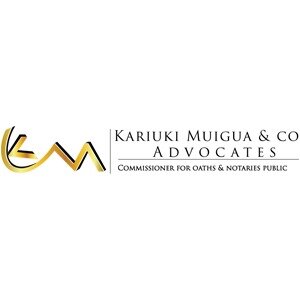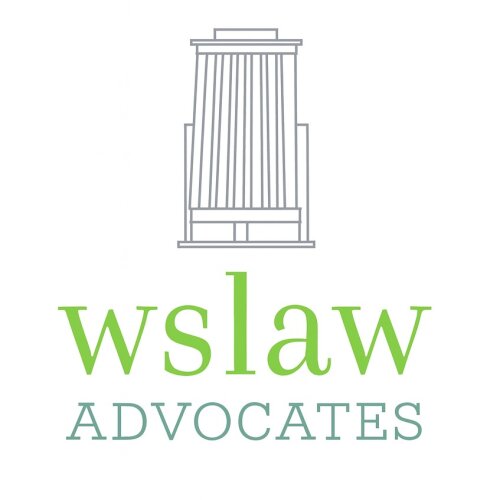About Administrative Law in Kenya
Administrative law in Kenya is a body of law that governs the activities of administrative agencies of government. These laws oversee the actions of the executive arm of the government and ensure they follow prescribed procedures. It aims at ensuring fairness, transparency, and accountability in public administration. The Constitution of Kenya 2010, coupled with specific statutes like the Fair Administrative Action Act of 2015, serves as the cornerstone for administrative law in Kenya.
Why You May Need a Lawyer
There are several situations where you might need a lawyer specializing in administrative law in Kenya. You may require legal assistance when challenging a decision made by a public authority that affects your rights or interests. This could include the revocation of permits and licenses, disputes over regulatory compliance, or unjust administrative penalties. Additionally, a lawyer can help navigate complex administrative processes, such as obtaining permits or contesting administrative decisions.
Local Laws Overview
Several key pieces of legislation govern administrative procedures in Kenya. The Constitution of Kenya 2010 sets the framework for the rule of law and fair administrative action. The Fair Administrative Action Act of 2015 is significant in setting out the parameters for administrative justice and the right to lawful administrative action. Other relevant laws include the Access to Information Act, 2016, which provides for the rights to access information held by public bodies, and the Public Service Commission Act, 2017, which governs the conduct of public officers.
Frequently Asked Questions
What is the role of administrative law in Kenya?
Administrative law in Kenya regulates the actions of governmental agencies and ensures that these bodies operate within the confines of the law, maintaining transparency, fairness, and accountability in public decision-making processes.
How can I challenge an administrative decision?
To challenge an administrative decision, you can file for judicial review in the courts of Kenya. This process involves court oversight of administrative agency's decision to ensure it complies with the law.
What is judicial review?
Judicial review is a process through which courts examine the actions of administrative agencies to ensure decisions are lawful, fair, and reasonable in accordance with established legal standards.
Can I request information from a government agency?
Yes, under the Access to Information Act, 2016, citizens have the right to request information from public bodies. This encourages transparency and accountability within governmental operations.
What happens if a public authority does not follow proper procedures?
If a public authority does not adhere to established procedures, individuals may seek legal remedy through judicial review or a complaint to the relevant oversight bodies.
Who enforces administrative law in Kenya?
The enforcement of administrative law falls under several bodies, including the judiciary through the courts, and administrative tribunals, which handle specific disputes outside the court system.
What is the Fair Administrative Action Act?
The Fair Administrative Action Act, 2015 outlines the rights of individuals to fair and lawful administrative proceedings, providing the necessary legal framework for administrative justice.
How do I obtain a government permit or license?
Obtaining a government permit or license involves submitting an application to the respective regulatory authority, complying with the necessary requirements, and possibly undergoing an evaluation process.
Can decisions of administrative tribunals be appealed?
Yes, decisions of administrative tribunals can be appealed in the courts, depending on the specific legislative framework governing the tribunal.
Is legal aid available for administrative law cases?
Legal aid may be available for administrative law cases, particularly for individuals who cannot afford legal representation. You can apply through organizations like the National Legal Aid Service.
Additional Resources
For further assistance, consider contacting the following entities:
- Office of the Attorney General: Provides legal advice and service on administrative matters.
- Law Society of Kenya: Offers a directory of qualified lawyers specializing in administrative law.
- Judiciary of Kenya: Information and resources on judicial review and legal proceedings.
- Commission on Administrative Justice (Ombudsman): Handles complaints against administrative bodies.
Next Steps
If you need legal assistance in administrative law, start by identifying a lawyer who specializes in this field. You can use resources like the Law Society of Kenya to find legal professionals. Prepare all relevant documents and information regarding your case to facilitate the consultation process. Consider seeking initial consultation to understand your legal standing and explore potential legal options. If finances are a concern, explore the possibility of legal aid through the National Legal Aid Service or pro bono services offered by some firms and legal organizations.
Lawzana helps you find the best lawyers and law firms in Kenya through a curated and pre-screened list of qualified legal professionals. Our platform offers rankings and detailed profiles of attorneys and law firms, allowing you to compare based on practice areas, including Administrative, experience, and client feedback.
Each profile includes a description of the firm's areas of practice, client reviews, team members and partners, year of establishment, spoken languages, office locations, contact information, social media presence, and any published articles or resources. Most firms on our platform speak English and are experienced in both local and international legal matters.
Get a quote from top-rated law firms in Kenya — quickly, securely, and without unnecessary hassle.
Disclaimer:
The information provided on this page is for general informational purposes only and does not constitute legal advice. While we strive to ensure the accuracy and relevance of the content, legal information may change over time, and interpretations of the law can vary. You should always consult with a qualified legal professional for advice specific to your situation.
We disclaim all liability for actions taken or not taken based on the content of this page. If you believe any information is incorrect or outdated, please contact us, and we will review and update it where appropriate.

















